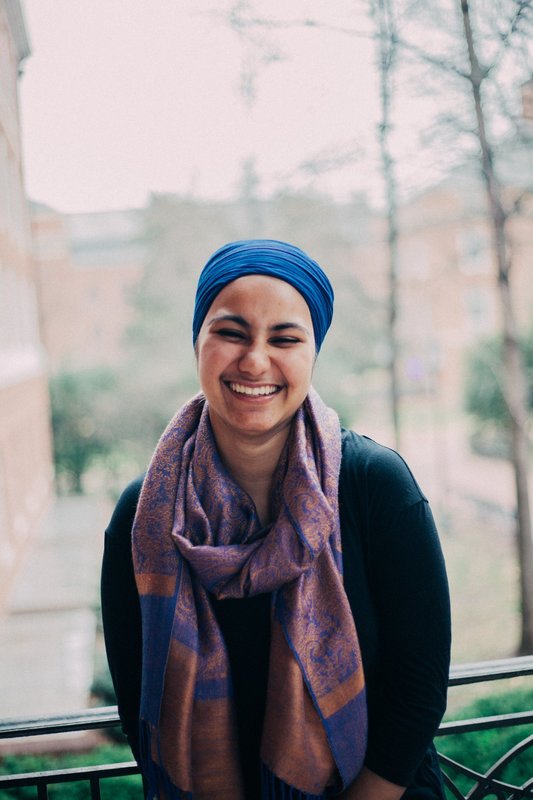Arshdeep Kaur
How has your family’s immigration story played a role in your identity?
“Cultural differences for sure. I think growing up as a first generation immigrant, there are gaps you notice in your parent’s knowledge of America or Western culture that have been hard to acknowledge sometimes. I used to correct my parents’ English all the time and I’m like, ‘Wait, maybe I should respect the fact that they can speak English and that they’re here in this society, rather than correct the gaps in their knowledge.’”
Do you know how your parents overcame the difficulties they faced as new immigrants?
"I think a lot of it was through faith. So, we’re Sikh. And so faith was very important for all of my family members and that was their link back to where they were from. They rooted their identity in that faith rather than in nationality or in the country where they were living. And family for sure. Even if their family was right next to them at the time, knowing they had the family support was really important.”
What do you think we can do to bridge that gap or change the current view on immigration?
“I think it might be a little bit cliché, but I’ve always found that telling stories is really important. Because I’ve felt that what made me understand people is talking to them and connecting with them. I think that’s important for unity between immigrant groups also. For example, a lot of people don’t realize that a lot of Asian Americans are undocumented. There’s unity to be found there. It’s really upsetting seeing families separated in the current climate. Thankfully, none of my family members have been deported, even though some of them were undocumented. I did have an uncle that was almost deported a few years ago; he was detained for several months. We’re very grateful that didn’t happen. I really think that if our country is deporting people and separating families it casts a very bad light. It doesn’t respect the sacrifices and the strengths that immigrants bring to our country.”
